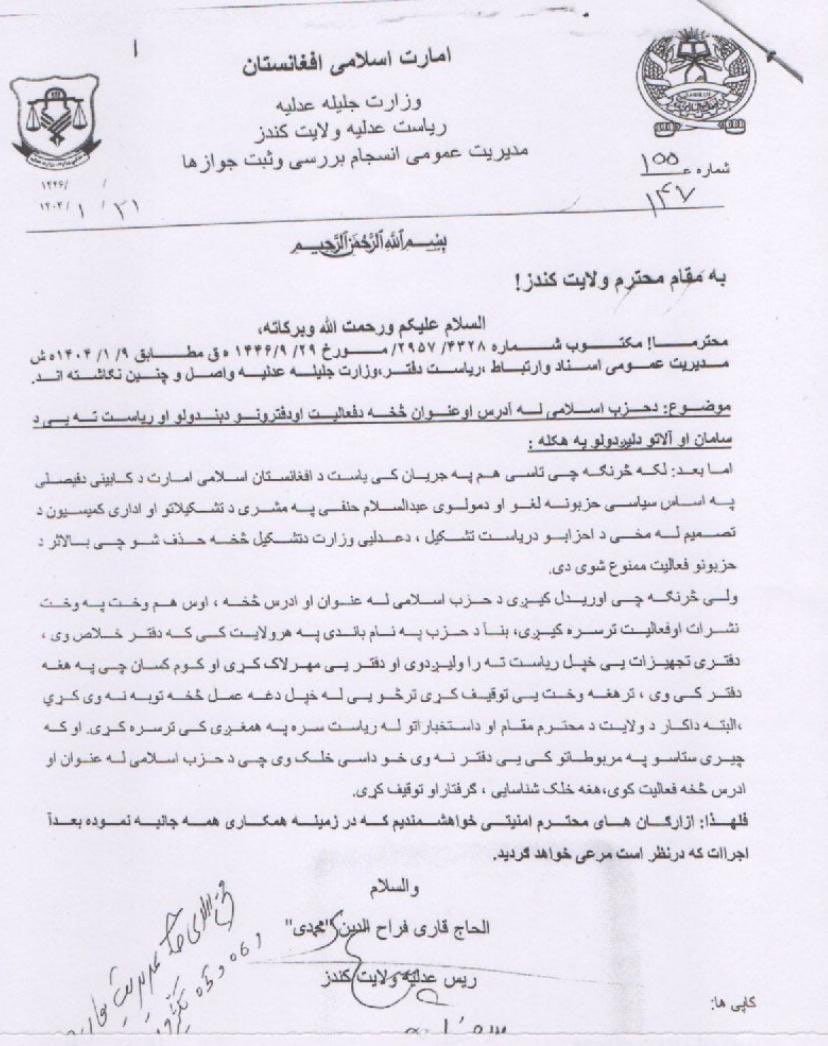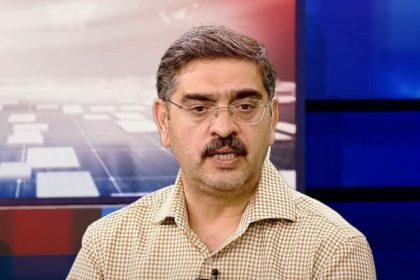RASC News Agency: In a new directive issued by the Taliban’s Ministry of Justice, provincial justice departments have been ordered to shut down all active offices of Hezb-e-Islami, the political party led by Gulbuddin Hekmatyar, confiscate party assets, and arrest affiliated staff members. Habiburrahman Hekmatyar, the son of the party leader, revealed the order on Monday, April 14, by posting a copy of the directive on the social media platform X. The document, circulated by the Taliban’s Directorate of Justice in Kunduz province and citing instructions from the Ministry of Justice, claims that “activities and publications continue to be carried out under the name of Hezb-e-Islami.”
According to the directive, Taliban authorities have been instructed to seal all party offices, transfer all equipment to provincial justice departments, and detain all personnel until they formally “repent” for their political activities. The order also mandates coordination with provincial governors and local intelligence departments. In provinces where the party does not have an official office, individuals operating in its name are to be identified and detained. Reacting to the development, Habiburrahman Hekmatyar drew comparisons between the Taliban and Afghanistan’s former communist regime, stating that the Taliban, like the communists before them, label all political opponents as enemies. “The communists failed and were humiliated. The Taliban are repeating the same failed and disgraceful playbook,” he wrote.
Since returning to power in August 2021, the Taliban have banned political party activities across Afghanistan. Offices of various political groups including Hezb-e-Islami’s media outlets have been forcibly closed. Additionally, a residence previously allocated to Gulbuddin Hekmatyar by the former Afghan government in the Darulaman area of Kabul has been reclaimed by the Taliban, and Hekmatyar was relocated to a less prominent location in Wazir Akbar Khan. This latest move to dismantle Hezb-e-Islami’s operations despite its past ideological proximity to the Taliban highlights the regime’s increasing intolerance toward any independent political presence. Analysts view it as part of a broader campaign by the Taliban to consolidate unchecked power, eliminate political rivals, and suppress even those factions that once shared its ideological struggle.
The dismantling of political parties, restriction of civil space, and persecution of dissenting voices indicate a systematic shift toward authoritarian rule, leaving no room for political pluralism in Taliban-controlled Afghanistan.






